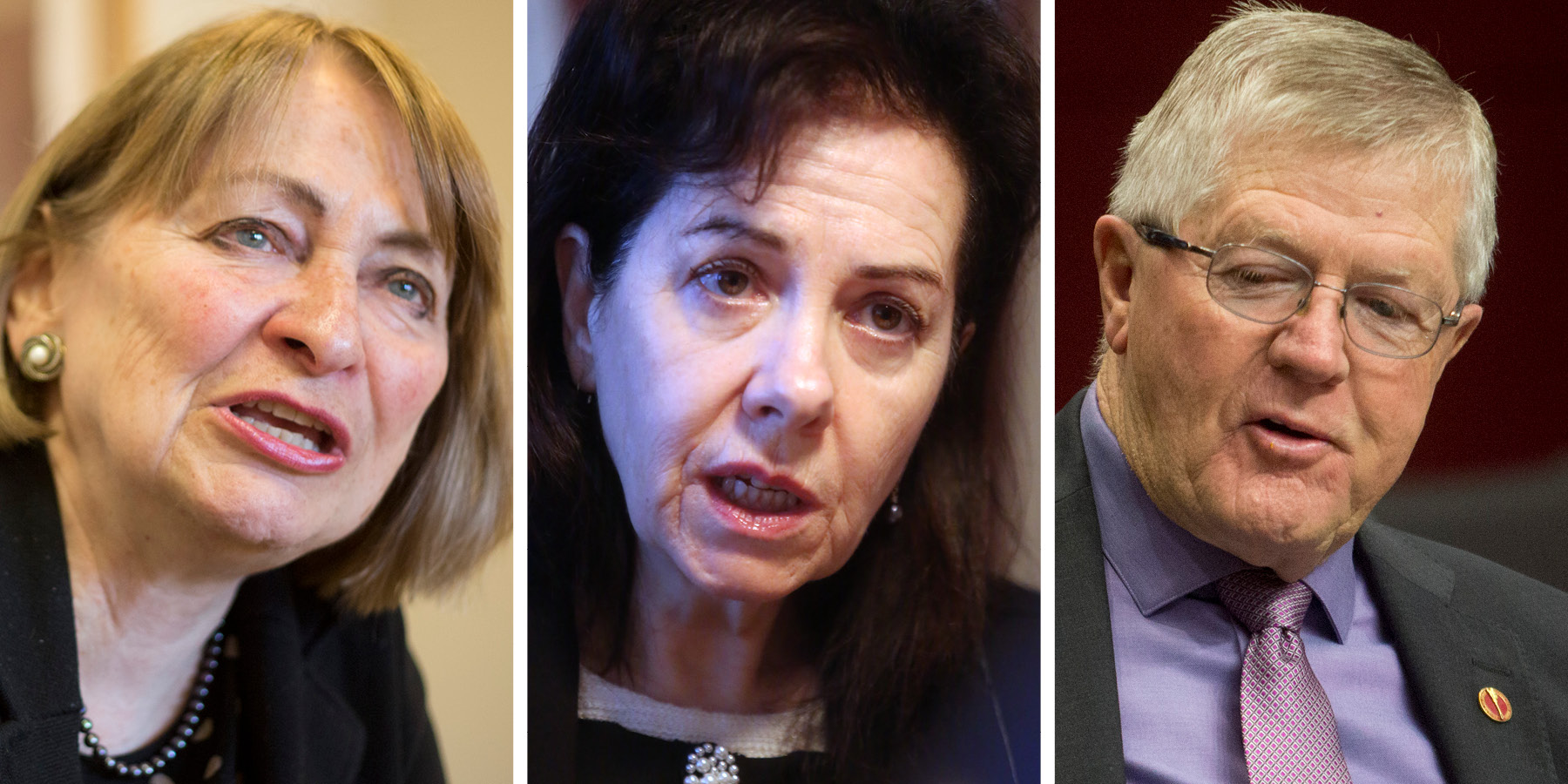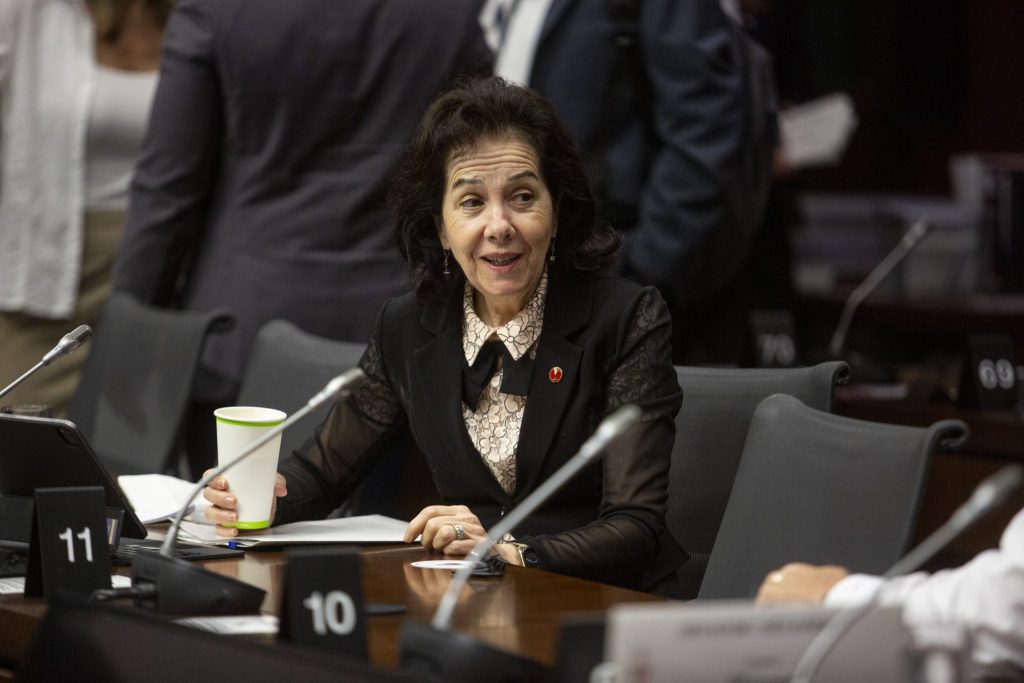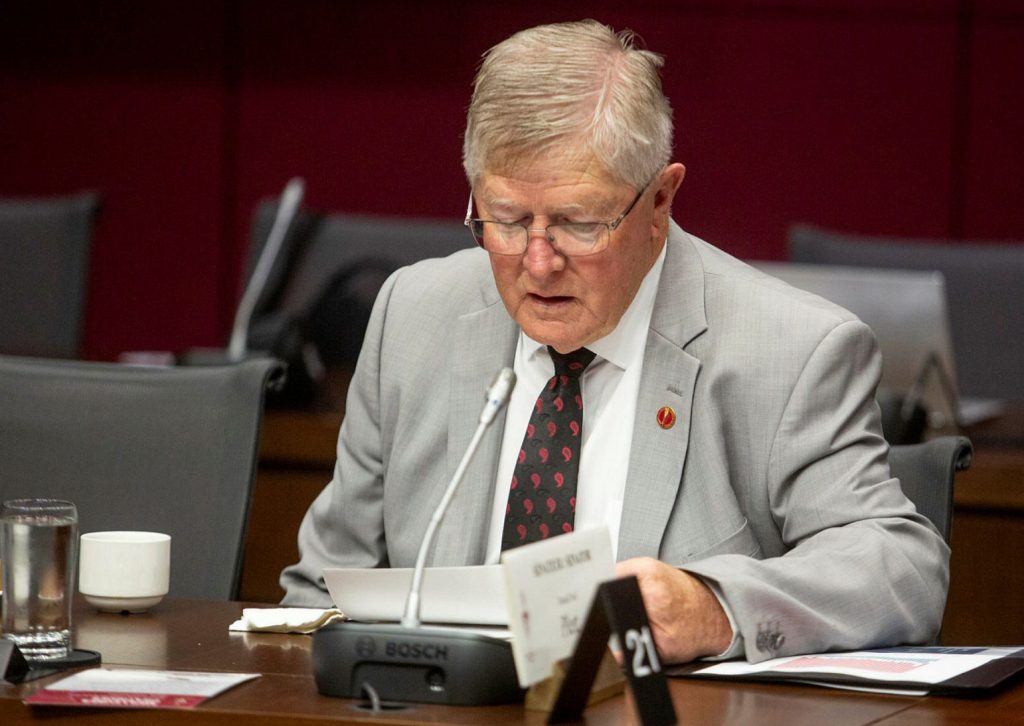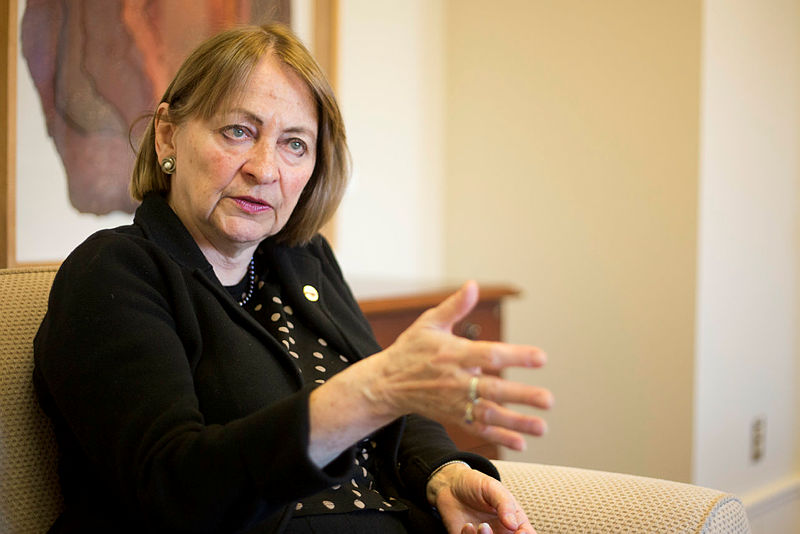Senate standoff sees Conservatives wield ‘exceptional and rarely used’ motion, putting two private members’ bills on ice

A dispute between Senate factions has left a pair of private members’ bills stuck in the Red Chamber until February, and Senators criticizing each other publicly for that result.
The trouble started late in the evening of Dec. 12, when the Senate Conservatives moved to kill a private member’s bill on the verge of passing that proposed outlawing the marketing of junk food to children. It continued when the Senate rose for the holidays on Dec. 17 without a final vote on another bill, to stiffen sentences for assaulting first responders, favoured by those Conservatives.
Conservative Senate Leader Don Plett (Landmark, Man.) accused members of the Independent Senators Group (ISG)—the largest group in the Senate—of choosing to “shamefully play political games” in a press release issued on Dec. 17.
Senator Raymonde Saint-Germain (De la Vallière, Que.), who leads the ISG, and Senator Donna Dasko (Ontario) fired back in a joint interview with Politics This Morning on Dec. 18. Saint-Germain called Plett’s press release “misleading,” and Dasko described Plett’s motion to kill the bill she has sponsored “radical” and “anti-democratic.”

In an interview on Dec. 19, Plett said his intention was not to kill the junk food bill—he knew he didn’t have the votes—but to delay it, and allow the Senate a chance to vote through the first responders bill before the holidays. He argued that the first responders bill had enjoyed unanimous support in the House of Commons, while the junk food bill—opposed by Conservative MPs—had not. He said he was unwilling to “trade bad legislation for good legislation.”
Here’s what happened:
Bill C-252 proposes to ban marketing junk food to children. It was sponsored in the House of Commons by Liberal MP Patricia Lattanzio (Saint-Léonard–Saint-Michel, Que.), and was passed by MPs in October 2023. The Conservatives voted against it in the House, and MPs from all other parties voted in favour. Dasko sponsored the bill in the Senate.
Bill C-321 proposes requiring that judges, when handing out sentences for assault, consider it an “aggravating circumstance” if the victim of the assault is a “first responder” or other professional providing health services. The bill was sponsored in the House by Conservative MP Todd Doherty (Cariboo–Prince George, B.C.), and was passed with support from all parties in the House this past February. Conservative Senator Leo Housakos (Wellington, Que.) has sponsored the bill in the Senate.
The junk food bill has advanced through multiple stages of debate and study in the Senate, including two days of debate at the final, third-reading stage. On both of those days, Senators from the ISG spoke about the bill, but Conservative Senators opted not to.

The first responders bill, on the other hand, has been debated and studied by a Senate committee, but has not yet been discussed at third reading in the Senate.
On Dec. 12, ISG Senators were planning to wrap up the debate on the junk food bill and call a final vote. The group had communicated that plan to the other Senate groups during the morning’s scroll meeting, according to Saint-Germain.
However, during the debate later that evening, the Conservative deputy leader in the Senate, Yonah Martin (British Columbia), moved to adjourn the debate to another day. The Conservatives lost the ensuing vote on that adjournment motion, and when they did, Plett moved what’s called a “hoist amendment.” The phrasing of that amendment asked that debate on the junk food bill be delayed for six months. According to the Senate procedure manual, however, a hoist amendment effectively defeats a bill, preventing it from being brought back before the Senate—a fact that Senate Speaker Raymonde Gagné (Manitoba) immediately clarified in the Chamber.
At that point it was a little after 10 p.m. Rather than beginning a debate on Plett’s hoist amendment, ISG Senator Lucie Moncion (Ontario) moved to adjourn the Senate, and a majority of Senators voted in favour.
Plett said he did not know before Dec. 12 that the ISG Senators wanted the junk food bill passed before the holidays. He said he doesn’t consider its passage an urgent matter as it would take a long time for its provisions and accompanying regulations to come into effect, and the Senate Conservative caucus wasn’t prepared to put up speakers to the bill at that time.
If the ISG had not moved to adjourn the Senate, and instead called a vote on the hoist amendment, Plett said the Conservatives would have been able to defer that vote until the following sitting day, and then perhaps delay it again until the Senate reconvenes in February. In that scenario, Senators would have moved on to a final vote on the first responders bill on the night of Dec. 12, Plett said.
“Our idea was to slow 252 down, so we could do our due diligence,” he said.
Plett also said he offered to help the ISG usher through two other private members’ bills along with the first responders bill—one to establish Arab heritage month, the other being the controversial supply management protection bill, C-282—but was rebuffed.
The Senate met just once more before departing for the holidays, on Dec. 17. Neither Plett’s hoist motion, nor any private members’ bills were discussed that day. After the Senate broke for the holidays, Plett issued the press release slamming the ISG for failing to pass C-321—the first responders bill—saying they had refused to hold a final vote on the bill on Dec. 12, and accusing them of choosing to “shamefully play political games.”

Dasko told Politics This Morning that “we would have been happy to have votes on both bills” on Dec. 12. Passing just the first responders bill after the Conservatives had delayed and tried to kill the junk food bill, however, was not going to happen.
“It’s just outrageous that this would be the expectation,” said Dasko.
Saint-Germain called it a “procedural miscalculation” by Plett.
“We decided that we will adjourn the Senate, and we will not agree to go to C-321 before we have voted on C-252,” she said, noting that the junk food bill is higher on the Order Paper, and thus should be dealt with first.
A collection of industry groups have lobbied against the junk food bill, including Health and Consumer Products of Canada, the Canadian Beverage Association, the Association of Canadian Advertisers, and the Canadian Association of Broadcasters.
When asked why Senators didn’t debate either bill or Plett’s motion on Dec. 17, Saint-Germain replied that ISG members wanted more time to prepare for the debate on the hoist motion, which is “exceptional and rarely used.”
Debate and voting on the hoist motion and the two bills will now wait until early February, when Senators return from the winter break. Plett said he expects his motion will be defeated in short order, and at that point his caucus will be ready to continue the debate on the junk food bill.
A version of this story first appeared in Politics This Morning, your go-to source for insider news, analysis, and updates on where all the key political players are that day. Get more insider coverage directly to your inbox from The Hill Times‘ editor Peter Mazereeuw and reporter Riddhi Kachhela in this subscriber-only daily newsletter. Sign up here.
The Hill Times






 LICENSING
LICENSING PODCAST
PODCAST ALERTS
ALERTS













